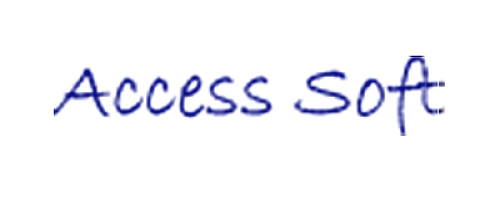Access Soft Review 2026
What is Access Soft?
I’m sorry, but I couldn’t find any information on “Access Soft” in the context of forex. It’s possible that there might be a misunderstanding or typo in the name. Could you please provide more details or check the name? I’m here to help!.
What is the Review Rating of Access Soft?
What are the Pros of Access Soft?
Access Soft, commonly known as Microsoft Access, is a powerful database management system that offers several advantages, especially in the context of forex trading. Here are some of the key benefits:. Ease of Use: Microsoft Access is known for its user-friendly interface and intuitive design. Even individuals with minimal technical knowledge can navigate the software effortlessly. This feature can be particularly useful for forex traders who may not have extensive technical skills but need to manage large amounts of data efficiently. Data Storage and Retrieval Capabilities: Microsoft Access provides robust data storage and retrieval capabilities. It allows users to easily import and export data from various sources, ensuring seamless integration with other applications. This is crucial in forex trading where data from different markets and currencies need to be analyzed and compared. Integration with Other Microsoft Tools: Microsoft Access integrates well with other Microsoft tools. This can be beneficial for forex traders who use other Microsoft applications for their operations, allowing for a streamlined workflow. Scalability: Microsoft Access can handle both small and large databases, accommodating the evolving needs of businesses and organizations. This scalability can be a significant advantage in the dynamic world of forex trading where data volumes can grow rapidly. However, it’s important to note that while Microsoft Access has many advantages, it also has some limitations. For instance, it may struggle to handle large amounts of data or complex queries. Additionally, due to its file-based architecture, Access databases are more prone to corruption compared to server-based databases. Lastly, it may not provide the same level of security and control as other database management systems. These factors should be considered when deciding whether to use Microsoft Access in a forex trading context.
What are the Cons of Access Soft?
While Access Soft can be a powerful tool for managing data, it does have its drawbacks, especially when used in the context of forex trading. Here are some potential disadvantages:. Limited Scalability: Access Soft is not designed to handle extremely large datasets. This can be a significant drawback in the forex market, where traders need to analyze vast amounts of data in real-time. Lack of Real-Time Updates: Access Soft may not provide real-time updates, which are crucial in the fast-paced forex market. Complexity: While Access Soft offers a range of features, it can be complex and difficult to use effectively without proper training. Limited Customization: Access Soft may not offer the same level of customization as some other trading platforms. This can limit a trader’s ability to tailor the platform to their specific needs. Dependence on a Single Vendor: As Access Soft is a proprietary software, users are dependent on a single vendor for updates and improvements. Lack of Mobile Support: Access Soft may not offer robust mobile support, which can be a disadvantage for forex traders who need to monitor the market and make trades on the go. Integration Issues: There can be challenges when trying to integrate Access Soft with other software or platforms. Cost: Depending on the version and licensing, Access Soft can be expensive, especially for individual traders or small businesses. In conclusion, while Access Soft can be a useful tool for data management, its limitations may make it less suitable for forex trading. Traders should carefully consider these factors when choosing a trading platform.
Is Access Soft Regulated and who are the Regulators?
There is no information available about a company or entity named “Access Soft” in the context of forex regulation. It’s important to note that the regulation of forex trading entities varies by country and is typically overseen by financial regulatory bodies. For example, in the United States, the Federal Reserve supervises and regulates many large banking institutions. It’s recommended to always verify the regulatory status of any financial entity before engaging in transactions. Please consult with a financial advisor or conduct further research for specific information.


